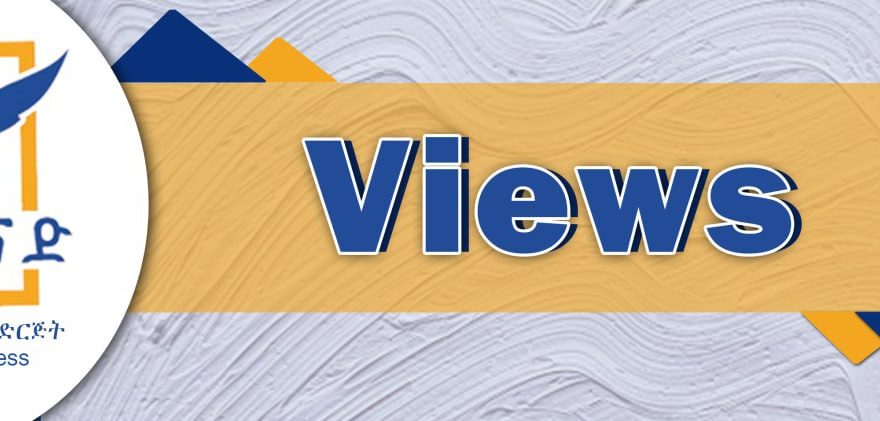
Social media technologies and the resultant outlets intended to promote friendship, peace and sharing information among the people of the world. Unfortunately today these media outlets are becoming forums to disseminate terrorism, political squabbling and soft media war at all levels. In modern communications across the world has now crossed several decades. Social media is an internet-based form of communication. Social media platforms allow users to have conversations, share information and create web content.
There are many forms of social media, including blogs, micro-blogs, wikis, social networking sites, photo-sharing sites, instant messaging, video-sharing sites, podcasts, widgets, virtual worlds, and more. Today Facebook, X, Instagram and other forms of social media have become the most popular ones.
Billions of people around the world use social media to share information and make connections. On a personal level, social media allows you to communicate with friends and family, learn new things, develop your interests, and be entertained. On a professional level, you can use social media to broaden your knowledge in a particular field and build your professional network by connecting with other professionals in your industry. At the company level, social media allows you to have a conversation with your audience, gain customer feedback, and elevate your brand.
The use of social media has grown significantly, influencing various aspects of personal, social, economic and political life. Here are some key areas where social media plays a role: Social media facilitates instant messaging, video calls, and online discussions. It also helps people stay connoted with friends, family, and colleagues globally. In addition, it provides a platform for networking and professional collaboration. Social media outlets seem to act as primary sources of news and views, information sources by people of all walks of life including leaders, professionals, advertising firms and all types of users across the world. They outsmart mainstream media houses in that they are fast and rather efficient in sharing breaking news. They provide access to online courses, webinars, and tutorials. They help students and teachers interact beyond traditional classrooms.
The number of social media users in Ethiopia is growing by days and hours. Some 70 million customers in the country can now have access to these outlets.
Escalation of social media war on the people and government of Ethiopia have two spatial dimensions. It is conducted by employing locally based social media streams, official commercial media outlets and through the representatives of registered international commercial media houses residing in Ethiopia.
The targets of their moribund propaganda ploy include the entire reform program of the country, specific and sometimes all ethnic groups in the country except their favorite one which they depict as the victim of the political order, the leadership of the country and of regions.
They use social media systems to impart their ethnocentric and chauvinistic philosophy of falsehood hatred manifested through their bad language, anger and false stance of representing a specific ethnic group much like the Machiavellian theory of power. They frame their shameless propaganda based on the following strategic that they have partially borrowed from the war propaganda of Nazi Germany.
First they create an agenda which seems to be based on the challenges the country is facing like inflation, IDP issues, misunderstandings among religious groups within the same religion and without, unemployment problems, climate change issues, challenges in the development sectors of the country and other matters.
Although such agenda are positive development challenges which the government is attempting to resolve, they take it as issues that are deliberately created by the government to “elongate its rule on the people of Ethiopia”. Although they cannot deny the positive achievements of the current political order they take it as a strategy of appeasement for the people of Ethiopia.
Second they use the agendas and demands and positive requests presented by various sectors and religious grouping of the country hijacking the issue as if it is their own because they claim that they represent these groupings. That is they use agendas forwarded by the various strata of the Ethiopian population.
Third, they attempt to play one ethnic group against the other in a bid to ignite a civil war from which they think they could somehow destroy the federal system and reinstate a unitary form of government to ensure the socio-economic and historical superiority. They underestimate the economic, political and cultural capacity of other ethnic groups and their ability to positively influence the political system in the country.
Fourth, they are now targeting the ENDF in a wanton defamation campaign attempting to falsely show that the defense forces of the country is drawn only from one ethnic and is established to keep the current government in power while the reality on the ground shows that the defense forces of the nation are drawn from all ethnic groups in the country and is the most apolitical force ever established in the country.
Fifth, they prepare false news with doctored footages and fake still pictures attempting to show that the peace accord with TPLF has collapsed and that war is imminent with the group.
Sixth, they misinterpret government commitment to the rule of law as fascistic campaign that targets a specific ethnic group and try to falsely show it as a campaign of ethnic cleansing.
Seventh, they prepare false news about the political state of affairs in the country and deliver them to international commercial media outlets and requote the news from them to falsely show the authenticity of their news simply because it has been dispatched by the commercial international media houses like the BBC,DW,VOA, AP, AFP and others.
Eighth, they employ total lies, half-baked truth, personal narratives and interviews with “politicians” of their choice in the diaspora who are already at loggerheads with the government and law enforcement bodies. They are not interested in disseminating balanced views but focus on emotional, divisive and unverifiable pieces of news.
Ninth, social media in Ethiopia effectively use the challenges and shortcomings of mainstream media, public media houses in particular.
Ninth, the social media outputs on Ethiopia have their financial backing from the number of subscribers and as long as they have thousands of likeminded subscribers they can depend on.
To date social media outlets have become a forum for political organizations that the government calls competing parties, even though they are not competing in the strict sense of the word
The author of this article fully believes in the democratic rights of citizens to express their views by all the means that they can access. They can forward their views on any topic on international or national issues. They have every right to criticize the government and its programs and forward their suggestions but using social media for gossips, insults, propagating biases and stereotypes will harm the unity, fraternity and common narratives behind which Ethiopians are expected to rally.
Of late, social media in the country are concentrating on trying to stock and provoke war between Ethiopia’s neighboring countries by disseminating unofficial information, rumors and make ups using doctored pictures and videos. Extremist forces are trying to make up for their weak links in organizing themselves in a single political party.
What can be done to monitor and evaluate social media outputs in Ethiopia? The author suggests the following ideas.
Social media propaganda can spread misinformation, manipulate public opinion, and create division. Combating it requires a multi-pronged approach involving individuals, governments, media organizations, and tech companies.
Promoting digital literacy to help people identify propaganda, misinformation, and fake news will help people to identify the reality from farce. It would help users to have a balanced view.
Encouraging users to verify information before sharing and employ fact checking methods. Teach people to question sources, analyze bias, and check credibility. In Ethiopia, there are only 2 fact checking firms which a not adequately active because of so many reasons. It is also useful to conduct investigative journalism to verify facts from rumors.
Applying modern technologies like AI to clear doubts on various bits of information disseminated every hour and minutes.
The weak links of mainstream media and their level of application of technologies in the country have deterred them not to be skillfully proactive in broadcasting breaking news on time. While social media outlets are generally free and efficient on their duties, public media outlets have several gatekeepers that need to check every bit of information for authenticity. Social media outlets are fast and broadcast their news before public media and commercial mainstream media houses can catch up.
Ethiopia still lacks a viable media policy and strategy that can help to guide media houses to develop their mode and content of their broadcasting. It is fair enough to broadcast news and views of government officials because they give hints not only on how the media should function but also deliver latest policy directions and development achievements the people and government of Ethiopia are registering.
Ethiopia has a media council of whom we do not hear much. They have their own limitations in terms of operating independently and lack of financial sources and facilities hinder their ability to carry out their duties and to act as bridge between the government and media houses across the country.
Media houses, particularly commercial media organizations repeatedly complain that government officials are reluctant to give them information and interviews on important and current issues but those who try to inform the [public on important national issues are still trying their best.
Lack of media policy at national level and absence of concrete means of monitoring social media outlets has complicated the tasks of public media house who also use social media forums to broadcast their information. There is more to be desired on issues related to application of social media in this country.
Editor’s Note: The views entertained in this article do not necessarily reflect the stance of The Ethiopian Herald
BY SOLOMON DIBABA
THE ETHIOPIAN HERALD SATURDAY 22 MARCH 2025





